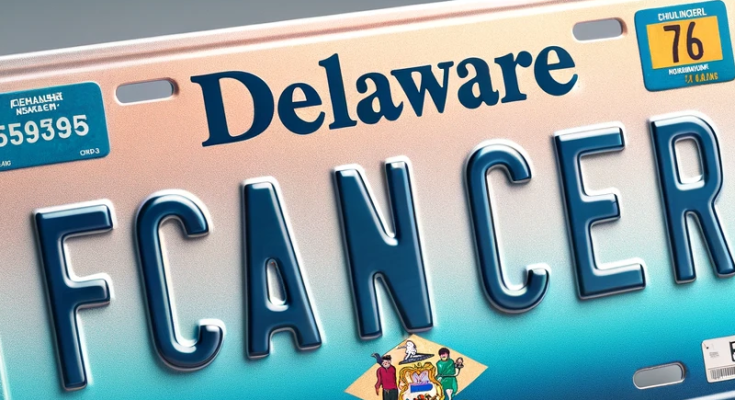The Delaware Division of Motor Vehicles (DMV) will cease issuing vanity license plates, at least for the time being. This decision follows a federal court ruling that declared unconstitutional the state law granting the DMV discretion to approve or deny such plates.
The case, Overington v. Fisher was sparked by a dispute involving Delaware resident Kari Lynn Overington, whose vanity plate “FCANCER” was recalled by the DMV in June 2021 for not representing the division or the state positively officials said at the time.
Overington, a breast cancer survivor, initially received her vanity plate in 2021 as a personal victory statement. However, the DMV’s decision to recall the plate prompted Overington to challenge the decision in court, citing a violation of her First Amendment rights. Representing herself initially, and later assisted by the ACLU of Delaware, Overington argued that the DMV’s actions constituted censorship.
In August 2022, the U.S. District Court for the District of Delaware denied the State’s motion to dismiss the lawsuit, acknowledging the case’s potential constitutional implications. The court’s recent decision has led to a halt in the issuance of all new vanity plates and a prohibition against recalling any existing ones, even those containing content previously deemed inappropriate by the DMV.
According to a letter from the DMV to Delaware state legislators, obtained by First State Update, the court found the existing statute problematic due to the broad discretion it afforded the DMV in evaluating vanity plate applications. The court’s forthcoming permanent injunction will further detail the changes required in DMV’s regulation of vanity plates.
In response to the court’s ruling, the DMV has disabled the vanity plate request links on its website and has begun the process of informing individuals with pending applications about the unfulfillment of their requests. The DMV is expected to work on legislative language to comply with the court’s orders over the next two weeks.

